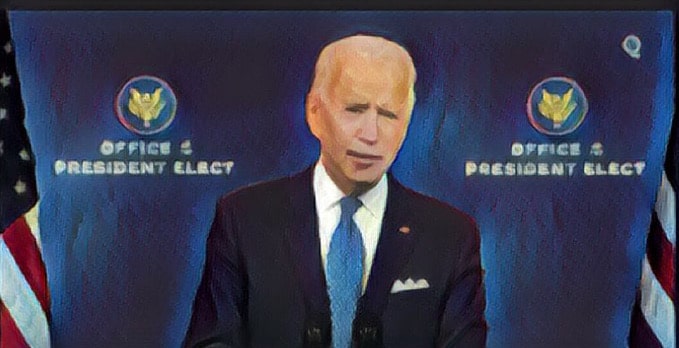Podcast: Play in new window | Download (Duration: 42:00 — 57.7MB) | Embed
In this episode of the Security Ledger Podcast (#202) we do a deep dive on President Biden’s cyber agenda with three experts on federal cyber policy and the challenges facing the new administration.
Well, it almost didn’t happen, but on January 20, Joseph Robinette Biden Jr. was sworn in as the 46th President of the United States. More than any president since Franklin Roosevelt, Biden inherited a country in the throws of a crisis. By the time of his inauguration, the COVID virus had killed upwards of 400,000 U.S. residents and tanked the national economy. As the incidents of January 6 indicated, right wing militant groups are stirring and threatening to topple democratic institutions.
Enter Solar Storm
And, as if that wasn’t enough, the weeks between the November Election and Biden’s January inauguration brought to light evidence of what is perhaps the biggest cyber intrusion by a foreign adversary into US government networks, the so called Solar Storm hack, which has been widely attributed to the government of Russia.
Even before Solar Storm, Biden made clear as a candidate that a cyber security reset was needed and that cyber would be a top priority of his administration. The wide ranging hack of the US Treasury, Departments, of State, Justice, Defense and Homeland Security – among others – just added fuel to the roaring dumpster fire of Federal IT security.
But what will that reset look like? To understand a bit better what might be in store in the months ahead we devoted this episode of the podcast to interviewing three experts on federal IT security and cyber defense.
Rebuilding Blocks
But first, before you can do a reset you need to understand what went wrong the first time around. In the case of federal cyber security, that’s not a short list.
Spotlight Podcast: Taking a Risk-Based Approach to Election Security
In our fist segment, we’re joined by two experts on cyber policy about the US governments struggles to get cyber security right, culminating with the problems seen during the Trump administration.


Lauren Zabierek is the Executive Director of Cyber Project at Belfer Center For Science and International Affairs at Harvard’s Kennedy School of Government. She’s joined by Paul Kolbe, the Director of the Intelligence Project at Belfer Center. The two joined me in the Security Ledger studios to talk about how the Biden Administration might rebuild the US government’s cyber function and who might populate key positions in the new administration.
Spotlight Podcast: QOMPLX CISO Andy Jaquith on COVID, Ransomware and Resilience
To start off, I asked them what the biggest challenges are out of the gate for the new administration.
The Byte Stops Here: What Cyber Leadership Looks Like
As Harry Truman famously said: the “Buck stops” at the President’s desk. That wasn’t a phrase that was heard much during the Trump years. But with a new President sworn in, what does real leadership look like on federal cyber security?

To find out, we invited Mark Weatherford into the studio to talk. Mark is the Chief Strategy Officer at the national cyber security center. a former CISO for the State of California and Deputy Under Secretary for Cyber Security at the DHS. In this conversation, Mark and I talk about the importance of presidential leadership on cyber security and what – if anything – the Trump administration got right on cyber policy in its four years in power.
As always, you can check our full conversation in our latest Security Ledger podcast at Blubrry. You can also listen to it on iTunes and check us out on SoundCloud, Stitcher, Radio Public and more. Also: if you enjoy this podcast, consider signing up to receive it in your email. Just point your web browser to securityledger.com/subscribe to get notified whenever a new podcast is posted.


Pingback: Episode 202: The Byte Stops Here – Biden’s Cyber Agenda | FREE AD BLOCK TEST
Pingback: Episode 203: Don’t Hack The Water and Black Girls Hack Founder Tennisha Martin | The Security Ledger
Pingback: Episode 206: What Might A Federal Data Privacy Law Mean In the US? – Raymond Tec